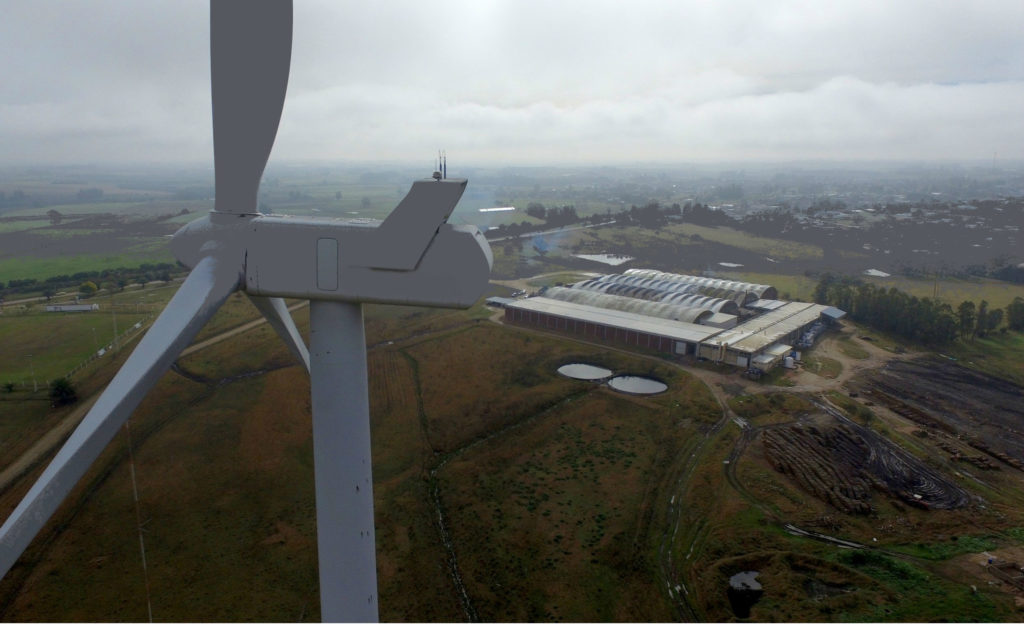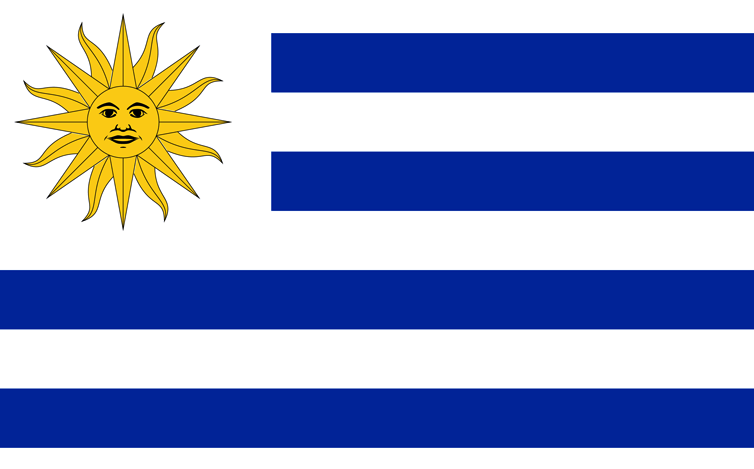LANERA ENGRAW: ENTREVISTA CON JUAN PABLO SALTRE
- 22 de junio de 2020
[tp lang=»es» not_in=»en»]
Fuente : https://www.engraw.com.uy/news-interview-juan-pablo-saltre.html
Entrevista realizada por el equipo de Comunicaciones de la lanera Engraw en Uruguay a Juan Pablo Saltre , a partir de la construcción del parque eólico para autogeneración instalado por Ventus en predio propio de la fábrica.

Para Ventus fue el primer molino que instalaron y el primer caso de auto generación. ¿Qué significó para ustedes? (A nivel empresarial y personal)
Proyectos como el realizado en Engraw han sido de especial relevancia para los orígenes de Ventus. Ha sido la constatación de que este modelo de negocio de autoconsumo de energía contribuye de manera positiva en el cuidado del medio ambiente, ni que hablar, pero también a mejorar los resultados de la empresa. Por medio de la instalación de este proyecto, la lanera pasó a autoabastecer en el entorno del 75% de su operativa a través de fuentes renovables, lo que le permitió acceder a importantes ahorros en el consumo de energía.
¿Crees que el haber instalado el primer aerogenerador en una empresa privada hizo que otras empresas siguieran sus mismos pasos?
Sin dudas el caso de Engraw ha sido uno de los mojones nuestros en Ventus, a partir del cual nos hemos convertido en socios y confidentes de industrias grandes y medianas en Uruguay. A partir de ello hemos sido consultados por cientos de empresas, quienes han querido analizar la posibilidad de instalar un proyecto e eólico o solar, de acuerdo a sus necesidades de consumo de energía. En este marco, desde Ventus hemos construido más de 30 proyectos renovables para industrias, y hemos instalado unos 40 aerogeneradores en Uruguay convirtiéndonos en la empresa referente en la construcción de parques en este país.
¿Podrías explicar para personas que no conocen el sistema de autoabastecimiento energético mediante energía renovable, cómo funciona?
En nuestro país los medianos y grandes consumidores tienen la oportunidad de producir y abastecerse con su propia energía. De este modo algunas empresas que son electro intensivas instalan proyectos eólicos en predio propio, como es el caso de Engraw, y abastecen su operativa con energía propia de forma más económica. Otros consumidores optan por instalar su propia energía solar, por ejemplo.
¿Creés que el consumidor valora los productos cuyo impacto medioambiental sea positivo?
Definitivamente. Uruguay en general ha promovido políticas que han buscado transformar la matriz energética, y lo ha logrado. Hoy Uruguay es el país de mayor penetración de energías renovables del continente, y el segundo en el mundo.
Desde Ventus hemos participado de este cambio en la matriz, y hemos experimentado cómo las industrias han ido acompañando esta iniciativa de pasarse a energías limpias.
¿Cómo crees que va a ser el mundo en lo que respecta a energías, en 10 años? Tanto a nivel privado como público, consumo energético de empresas y hogares.
Sin lugar a dudas imaginamos un mundo apoyado aún más en las energías limpias. Imaginamos un mayor abastecimiento de las industrias y hogares a través de energías renovables, y por lo tanto mayor competitividad en los precios de la energía.
Avizoramos un cambio en la matriz del transporte, que con seguridad tomará mayor relevancia en los próximos años.
En resumen, creemos que el futuro será renovable.
[/tp]
[tp lang=»en» not_in=»es»]
Source: https://www.engraw.com.uy/news-interview-juan-pablo-saltre.html

Interview carried out by Engraw to Juan Pablo Saltre, Ventus CEO, about the construction of the wind farm for self-generation installed by Ventus on the factory’s own premises.
Engraw was the first mill Ventus installed and the first case of self-generated energy. Tell us, what did it mean to you? (both at a business and personal level)
Projects such as the one carried out at Engraw have been particularly relevant during Ventus’ beginnings. It meant the realization that this business model of self- consumption of energy positively contributes to caring for the environment, of course, but also enhances the company’s results. By implementing this project, the wool company began to self-supply around 75% of its operations through renewable sources, which brought significant savings in energy consumption.
Do you think setting up the first mill to be installed at a private company forged the path for other private companies to follow? And do you consider that this caused other companies within the renewable energy sector to follow the same steps?
Engraw’s case has undoubtedly been one of Ventus’ major milestones, from which we have managed to become partners and confidants of large and medium-sized industries in Uruguay. Since this took place, we have been consulted by hundreds of companies seeking to analyze the possibility of installing wind or solar energy projects, according to their energy consumption needs. We have built more than 30 renewable projects for industries and installed about 40 wind turbines in Uruguay within this framework, thus becoming the leading company in the construction of wind and solar farms in this country.
Could you explain for people who do not know the self-sufficient energy system through renewable energy, how does it work?
In our country, medium and large consumers have the opportunity to produce and supply themselves with their own energy. In this sense, some energy-intensive companies install wind projects on their land, as is the case with Engraw, and supply for their operations with their own energy in a more economical way. Other customers, instead, choose to install solar energy systems, for example.
Do you think consumers value products whose environmental impact is positive?
Certainly. In general, Uruguay has promoted policies that sought to transform the energy matrix and succeeded in doing so. Today Uruguay is the country with the highest penetration of renewable energy in the continent, and the second in the world. At Ventus, we have actively participated in changing the matrix, thus experiencing first hand the way in which industries have been accompanying this initiative to switch to clean energy.
Where do you think the world will stand in terms of energy in 10 years? Both privately,regarding energy consumption at companies, and publicly, regarding energy consumption in households.
Without a doubt, we imagine a world that is even more largely based on clean energy. We imagine a greater supply of industries and homes through renewable energy, and therefore greater competitiveness in energy prices. We foresee a change within the transport matrix, which will surely gain wider relevance in the years to come. In summary, we believe that the future will be renewable.
[/tp]




